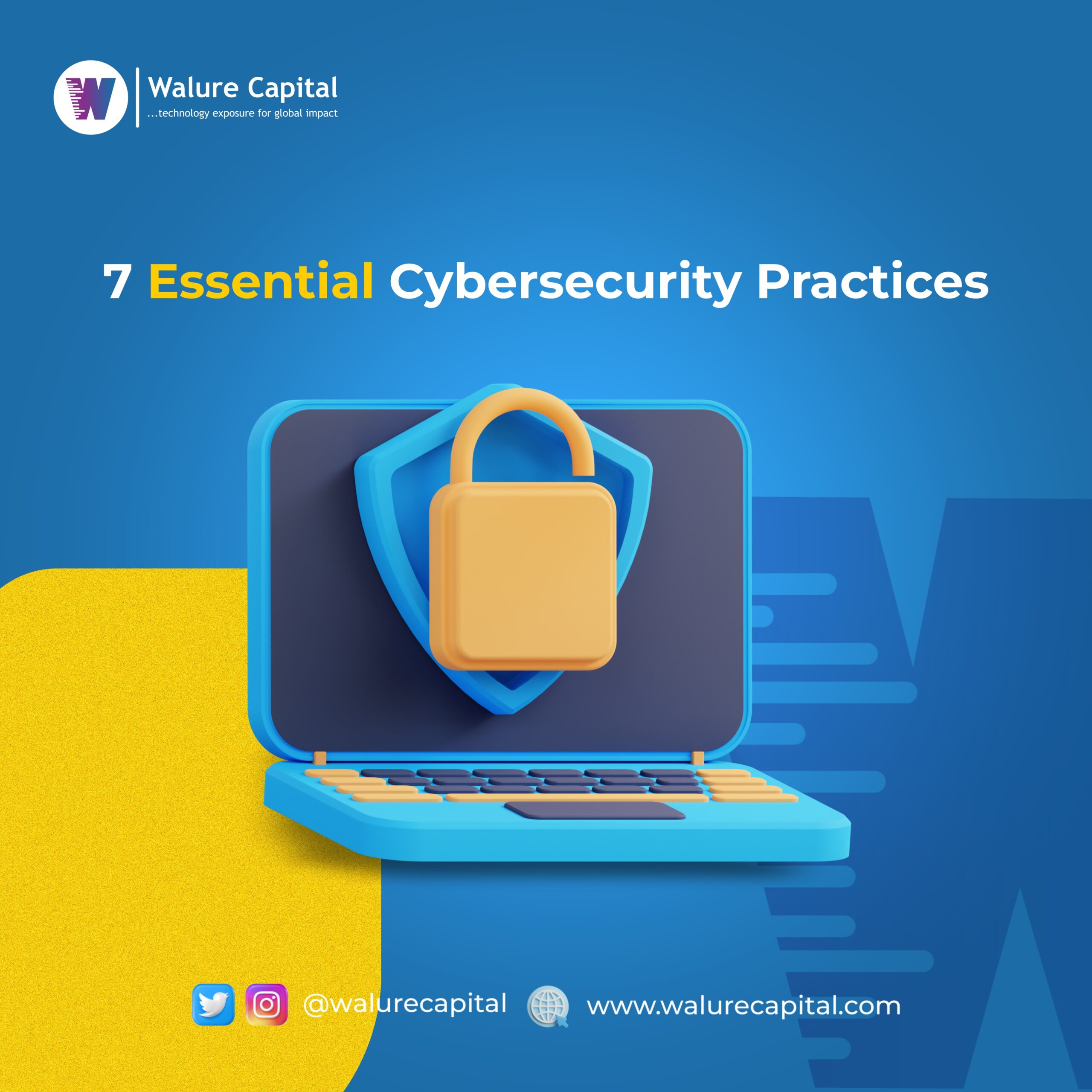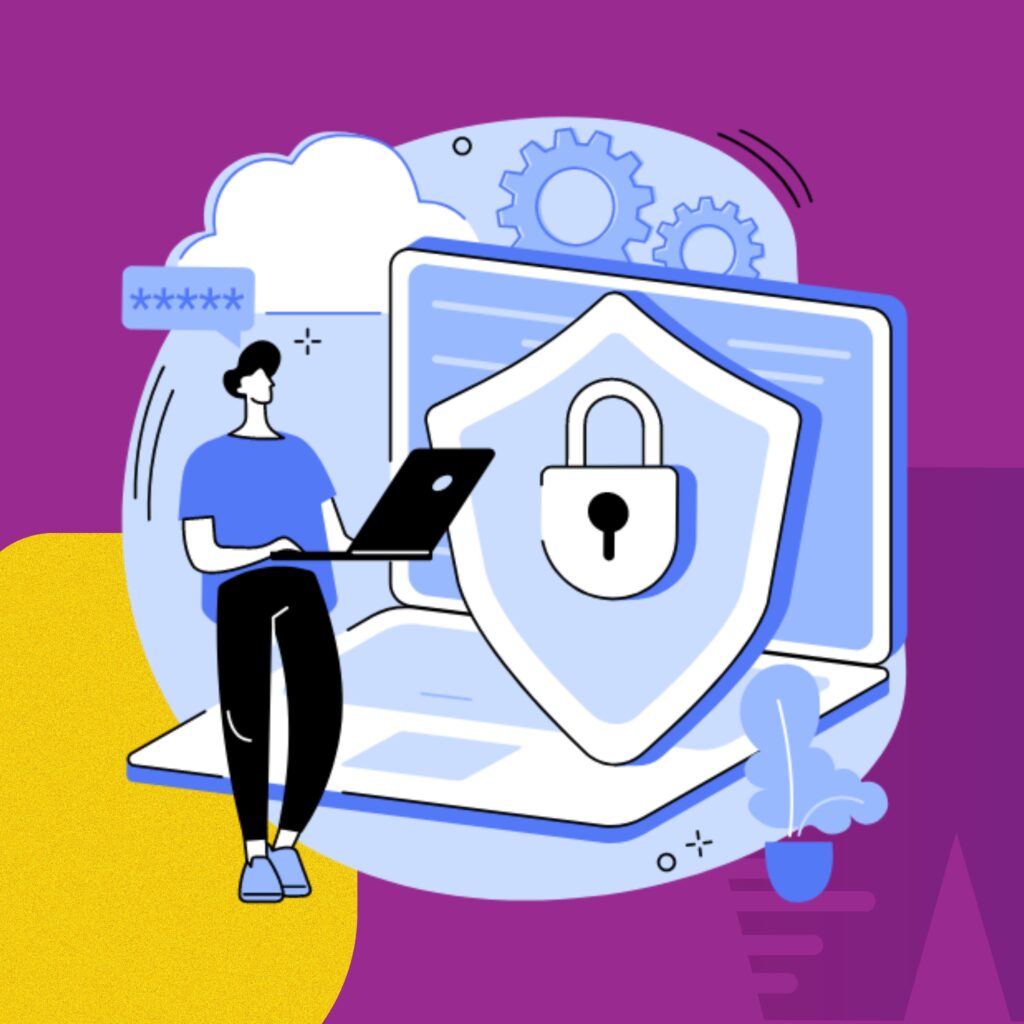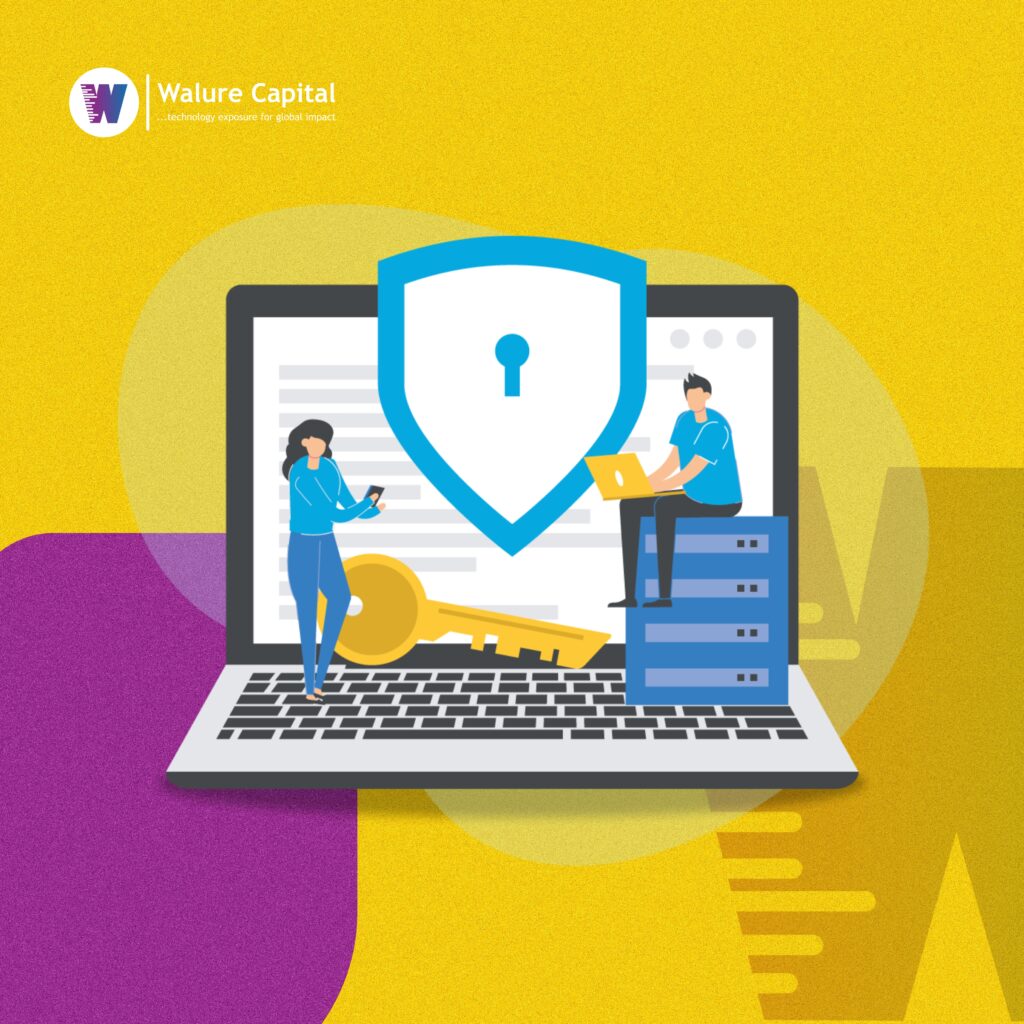Blogs
Media

7 Essential Cybersecurity Practices
Published Sep 08, 2023
There is no doubt that cybercrime is rapidly emerging as one of the swiftest expanding criminal activities globally, persistently affecting businesses across various sectors.
Cybersecurity is not just for big companies; it’s also essential for individuals. In this blog post, we’ll explore simple cybersecurity practices to help protect your personal and professional online presence.

–Strong and Unique Passwords: One of the simplest yet most effective ways to protect your online accounts is by using strong and unique passwords. Avoid using common passwords like “123456” or “password.”
Create passwords that include a mix of uppercase and lowercase letters, numbers, and special characters. Consider using a passphrase made up of random words, which can be easier to remember and harder for attackers to crack.
–Think Twice About Public Wi-Fi: Public Wi-Fi networks are often insecure, making them targets for hackers to intercept your data. Avoid doing sensitive tasks like online banking or entering passwords on public Wi-Fi.
If you must use public Wi-Fi, consider using a Virtual Private Network (VPN) to encrypt your connection.

–Keep an Eye on Your Accounts: Regularly check your bank statements, credit reports, and online accounts for any unusual activity.
The sooner you catch unauthorized transactions or breaches, the faster you can take action to limit the damage.
–Download Only from Trusted Sources: When downloading software or files, stick to trusted sources. Be cautious of downloading from unfamiliar websites or clicking on suspicious links, as they could lead to malware infecting your device.
–Multi-Factor Authentication is Key: Multi-factor authentication (MFA) adds an extra layer of security to your accounts.
Even if someone gets hold of your password, they won’t be able to access your account without the second authentication step.
This could be a text message, a code from an authentication app, or a fingerprint scan. So ensure to get this.
–Beware of Phishing Scams: This is a common trick cybercriminals use to fool you into revealing sensitive information.
Be cautious when clicking on links in emails, particularly if they seem urgent or suspicious. Always double-check the sender’s email address and watch out for bad grammar or strange requests.

–Regularly Backup Your Data: Regular backups ensure that even if you’re hit by a cyberattack, you won’t lose all your data. Keep backups in a safe place, either offline or in a trusted cloud service.
In conclusion, securing your online presence demands awareness, attentiveness, and proactive steps. By following these vital cybersecurity practices, you can significantly decrease the risk of falling victim to cyber threats.